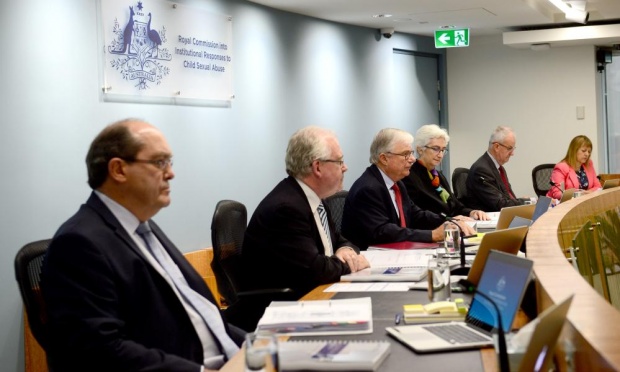Child Sex Abuse Victims May Not Get Paid What They Expect – Criminologist
By Joshua Robertson
Victims of institutional childhood sexual abuse may have to rethink expectations about money payments and the level of scrutiny applied to claims for redress, according to a criminologist who has studied the issue in depth. Griffith University professor Kathleen Daly said she was concerned with a “misfit” between what survivors wish to receive and what will be required in an assessment process in the wake of the royal commission. The commission has said it had “no fixed view on what payments should be” but released a consultation paper with a report in January by Finity consulting which modelled different average payments of $50,000 to $80,000. A scheme that offered an estimated 65,000 claimants an average of $65,000 would cost $3.8bn in payments alone before other costs including counselling, the report found. Victims, lawyers, social workers, religious institutions, youth groups, insurers and governments gave their responses in public hearings last month. The royal commission plans to report back with final recommendations on redress and civil litigation by early July, a task Daly said would be a “world first” in its complexity. “No other proposed redress scheme in the world has sought to consider sexual abuse in different contexts, both community-based and out-of-home care, and across differing jurisdictions,” she said. One of the major stumbling blocks for a national redress scheme remains lack of support from the federal government. The prime minister, Tony Abbott, on Wednesday promised a “strong and comprehensive response” to the royal commission’s recommendations. But the government has told the commission it does not have the legislative power to run the scheme and was unwilling to pay money on behalf of institutions that were now defunct or financially incapable. Daly said the commission was “attempting to find common ground among competing interests”. But a key issue was the standard of proof to be used in a redress scheme, she said. In past schemes in Australia and Canada, this has ranged from “plausibility” to the more demanding “balance of probabilities” standard used in civil lawsuits. One survivors’ group before the commission, the Care Leavers of Australia Network, found in a survey of 367 its members that a “fair amount of redress” ranged from $100,000 to $250,000. Daly said these amounts were “very high, higher than any other redress scheme, particularly if plausibility is the standard of proof”. To date, the highest average amounts received in any matrix-based schemes are $98,000 for one scheme in Canada and $88,000 for one in Ireland. These involved “detailed assessments of injury and impact, approximating close to a civil litigation standard of estimating damages.” “Many survivors don’t want to go through that kind of assessment, which is understandable. But to get high monetary amounts may require such assessment,” Daly said. “Of course, monetary payments are just one element in a redress scheme, which also includes direct and meaningful responses from institutions, including apologies, and access to counselling.” Survivors say that they do not pursue redress for “the money,” but rather for “institutions to acknowledge that what they did was wrong.” “However, once money payments are announced, people start thinking about money differently,” she said. A particular problem emerges when victims are “asked to itemise various acts of abuse and the impact on them”. “They begin to think, how much is my abuse worth? How much am I worth? “They create a market meaning of their abuse when they need to see it as a symbolic backing up of an apology.” Daly’s new book Redressing Institutional Abuse of Children shows that average payments in schemes in Australia were $23,000, half the average Canadian figure of $46,000. She said this was partly due to the fact that “Australian schemes were more often administratively based, and those in Canada more often negotiated by lawyers.”
|
.
Any original material on these pages is copyright © BishopAccountability.org 2004. Reproduce freely with attribution.
